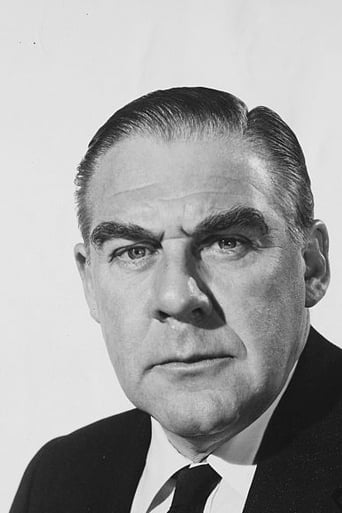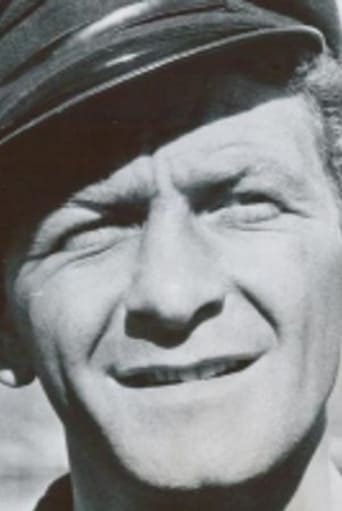WasAnnon
Slow pace in the most part of the movie.
Stometer
Save your money for something good and enjoyable
Pacionsbo
Absolutely Fantastic
AshUnow
This is a small, humorous movie in some ways, but it has a huge heart. What a nice experience.
l_rawjalaurence
THE 'MAGGIE' rehearses a theme highly familiar to most Ealing comedies, that of the powerful person being outwitted by ordinary citizens. The theme recurs time and again, notably in WHISKY GALORE! and PASSPORT TO PİMLICO (both 1949) and THE TITFIELD THUNDERBOLT (1953).In Alexander Mackendrick's droll comedy, the threatening force is personified by Calvin B. Marshal (Paul Douglas), a thickset American with an expensive camel-hair overcoat and domineering manner. He terrorizes hapless bureaucrat Pusey (Hubert Gregg) who obviously tries his best to do his job properly but proves highly unworthy of the task. Pitted against these two are the crew of the eponymous "Maggie," an aging "puffer" carrying Cargo along the Scottish waterways, even though its engine is clapped out, its metalwork falling apart, and its maximum speed is about six miles per hour. The skipper, a canny character if there was one (Alex Mackenzie) spends much of his time in local hostelries along the way, but proves more than a match for Marshal. The true source of the film's morality is provided by Dougie (Tommy Kearins) who looks after Marshal where needed, but doesn't shy away from criticizing the American where appropriate.Given the nature of the story, it's not surprising to find that the screenwriter is William Rose, an American also responsible for the huge hit GENEVIEVE (1953), another likable comedy that shows an old "puffer" - this time a vintage car - triumphing over adversity. THE MAGGIE is sensitively photographed by Gordon Dines, with a fine sense of the Highland landscape, and how it determines the way people lived at that time. Compared to Marshal's life, their sense of values might have seemed antiquated, but they possessed the kind of community and good fellowship that seems markedly absent from Marshal's world.THE MAGGIE is certainly a sentimental piece of work, especially at the end, but is nonetheless well worth looking at as an evocation of a long-lost world.
Spondonman
The general opinion has always been that The Maggie was one of Ealing's lesser comedies – but this means it was merely superb. It's a film by turns charming and gentle and nasty and ironic but always entertaining. It had a role for Paul Douglas as The American that when watching any other film he made I could never shake off – it's an intensely straight-faced farcical performance. Some serious people may regard him and all the other characters in it as cartoony stereotypes but thankfully I've always enjoyed it regardless: topically speaking aren't we all likely to be cartoony stereotypes to someone no matter how revered we may be to others?Brash American businessman Douglas is keen to move his cargo of essential household items to help live on remote Scottish island and his wimpish English agent Hubert Gregg is fooled by the shrewd Scottish skipper of a little puffer boat into thinking that he can deliver it all. Not liking his being fooled involves the businessman in chasing after the boat to get his cargo back. Favourite bits : the quadruple bluff in hunting the boat from the air; the cartoon rage at the pier; after the birthday party Douglas's and Sheena's poignant conversation on her future marriage choices, being meaningful and gentle; the gradual development to the orgasmic conclusion – which was the only thing left that could happen – is beautiful to watch and re-watch. Douglas steals every scene he's in but especially with his lines in those scenes and with his final side-splitting warning to Captain MacTaggart and the laughing seagulls.Imho because the moral of the story is more indistinct and the ending is slightly feeble even after all of the powerful irony that had gone before, this isn't quite in the same class as Whisky Galore or the best half dozen world class Ealing comedies, but it's a lovely journey all the same.
fung0
I feel extremely fortunate to have finally caught up with this beguiling little film. Good enough to rank among Ealing's best works, it has undoubtedly improved with age, giving us a snapshot of a time before technology shrank and homogenized our world.It's worth noting that this film is the work of screenwriter William Rose, who had created the delightful Genevieve a year earlier, and would go on, amazingly, to pen It's a Mad Mad Mad Mad World some ten years later, and win an Oscar for Guess Who's Coming to Dinner a few years after that.It's unfortunate that movie fans track actors and directors so much more closely than writers. The Maggie, no less than his other works, proves that Rose deserves to be remembered one of the great geniuses of film comedy.
nmorris-2
I remember vividly the first time I saw this film. It was a grey afternoon, spirits were drooping and I felt as dull as the tupperware sky outside. With no great relish, I turned on the afternoon movie - The Maggie - and gently let myself become enchanted. The word "gently" says it all, for this is an uplifting movie, full of charm and the odd brush stroke of pathos. Giggles transform into laughter with this one.It's an old tale of local knowledge taking on a Corporation - though in a private capacity as Calvin B Marshall is anxious to deliver some domestic appliances, including 4 baths ("What all on one island?" asks the incredulous Wee Boy), to a Scottish retreat, part of his plan to save an ailing marriage. The cargo unwittingly falls in to the hands of the motley crew of a puffer - The Maggie - and then begins a comic chase which is a delight to behold. Once Mr Marshall gets involved in a hands on way, he embarks on a journey of self-discovery. The lessons may be homely and somewhat prissy now, but it's pleasant to wallow in a social world that could never be. More's the shame for us. Still, it remains a wonderful wish-fulfillment world, touched by the gentlest of humours. A marvellous tonic for escapists.



